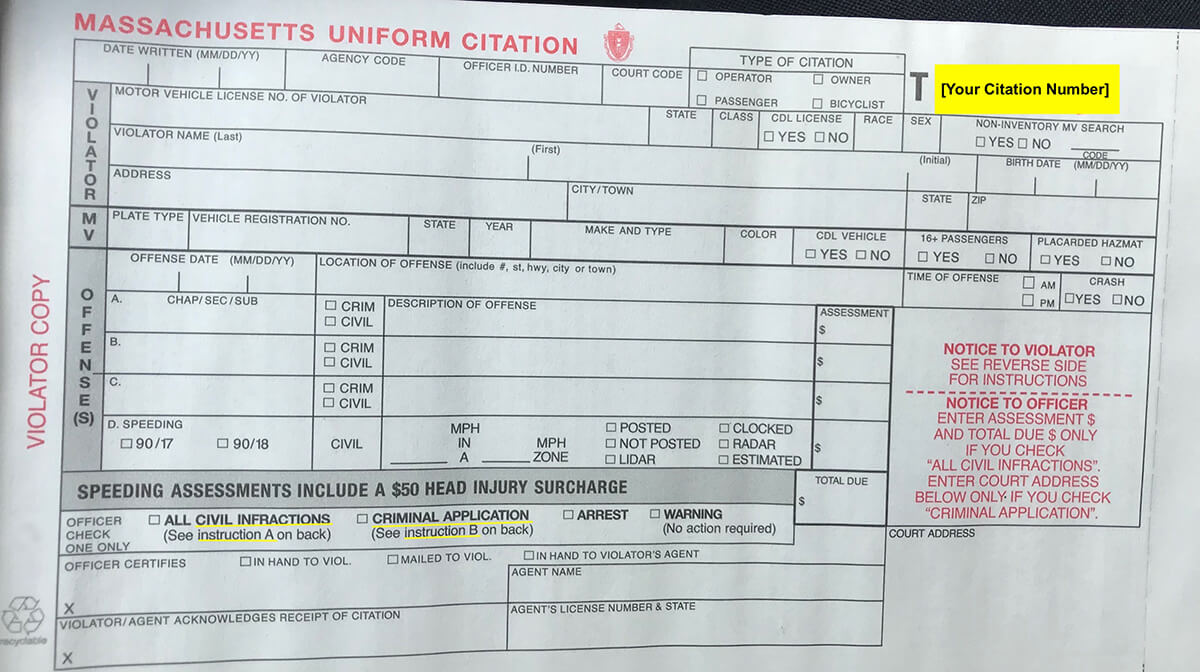Was Your Ticket a Civil Traffic Ticket or a Traffic Offense or Both?
It is very important to first understand what type of ticket you have been issued. A civil traffic ticket is an infraction and usually means you will have to pay a monetary fine. “Criminal” means that the police are charging you with a crime. If you are convicted of a criminal offense (meaning you lose) you may still have to pay a fine, but additionally you could lose your driver’s license; be put on probation; and, in some cases, go to jail.
It can be confusing as for either a civil traffic infraction or a criminal traffic offense you should get a citation or ticket from the officer. You may be charged with a criminal offense and not be arrested. To make matters more confusing, the ticket or citation you receive could have both civil infractions and criminal offenses on it.
An example:
You are stopped by the police for traveling 90 MPH in a posted 45 MPH zone. The ticket you receive indicates the officer is citing you for speeding (a civil infraction) and also for driving to endanger (a criminal offense). Both charges are on the same ticket /citation, but each charge has very different consequences.
To understand whether you have been cited for you first need to carefully review the front of the citation.
Refer to the bottom of the ticket where there are 4 boxes. These boxes are the fastest way to determine whether you are being charged with a criminal traffic offense or whether it is just a civil ticket, requiring payment of a fine at most. There are also boxes in the middle of the citation which will tell you what you are being cited for and whether it is criminal or civil. This article focuses primarily on the difference between the “All Civil Infractions” and “Criminal Application” boxes.
The other two boxes, “Arrest” and “Warning” do not follow the same appeal process. If you are arrested, you will know it. You will be handcuffed, put in the back of a police car, taken to the police station booked and brought to court. “Arrest” always means a criminal case. A “Warning” is just what it sounds like. The police officer is essentially saying, “I’m letting you go without any penalty (civil or criminal), but don’t do it again.” There is no appeal for a warning, because there is no penalty.
Now that you know what your citation means, it is critical to make an informed and timely decision about appealing.



